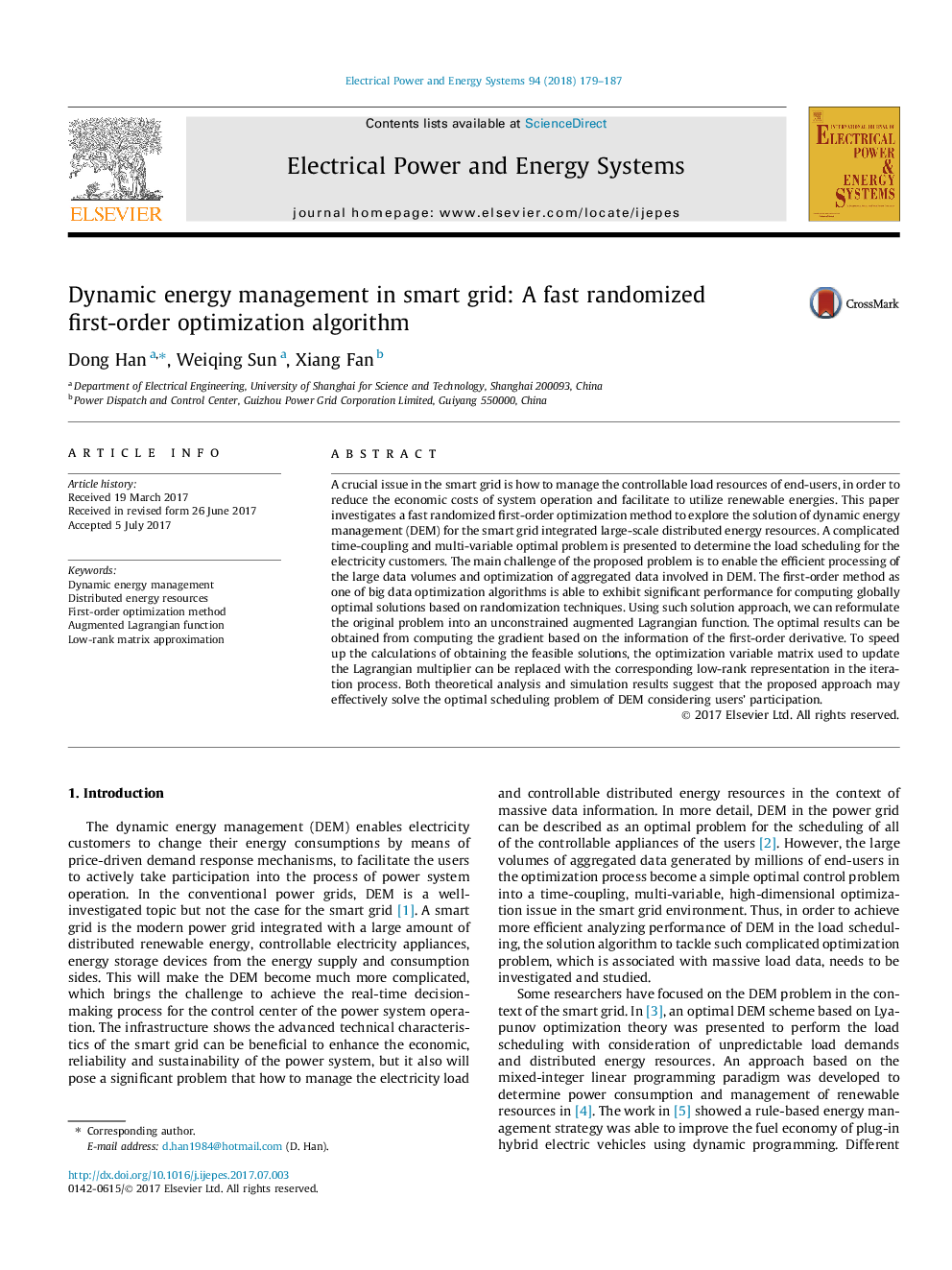ترجمه فارسی عنوان مقاله
مدیریت انرژی پویا در شبکه هوشمند: یک الگوریتم بهینه سازی سریع مرتبه اول تصادفی
عنوان انگلیسی
Dynamic energy management in smart grid: A fast randomized first-order optimization algorithm
| کد مقاله | سال انتشار | تعداد صفحات مقاله انگلیسی |
|---|---|---|
| 150516 | 2018 | 9 صفحه PDF |
منبع

Publisher : Elsevier - Science Direct (الزویر - ساینس دایرکت)
Journal : International Journal of Electrical Power & Energy Systems, Volume 94, January 2018, Pages 179-187
ترجمه کلمات کلیدی
مدیریت انرژی پویا، منابع انرژی توزیع شده، روش بهینه سازی اولویت، تابع لاگرانژی تکمیل شده، تقریبی ماتریس کم رتبه،
کلمات کلیدی انگلیسی
Dynamic energy management; Distributed energy resources; First-order optimization method; Augmented Lagrangian function; Low-rank matrix approximation;

